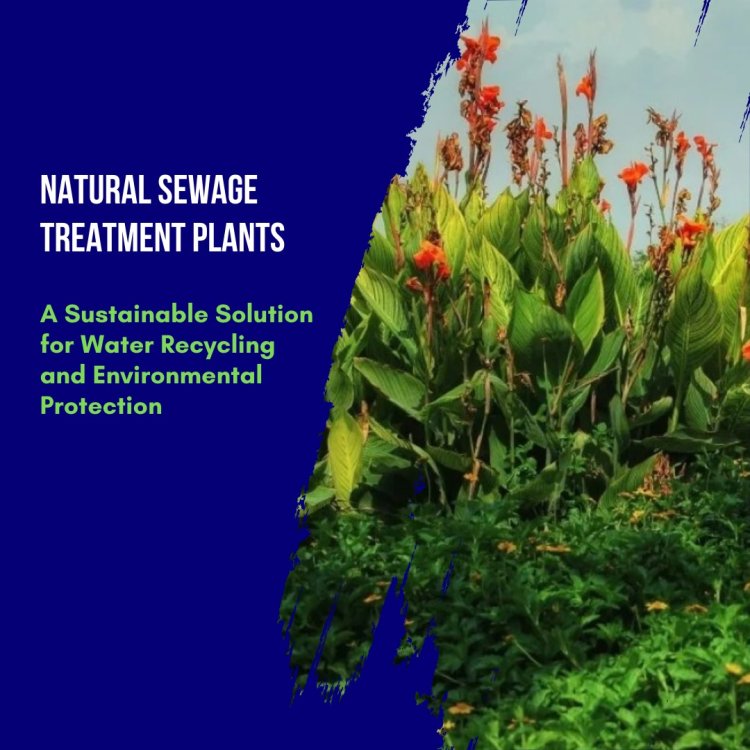Natural Sewage Treatment Plants: A Sustainable Solution for Water Recycling and Environmental Protection
Discover the ecological benefits of natural sewage treatment plants (STPs) over conventional methods.
Share this Post to earn Money ( Upto ₹100 per 1000 Views )

"Discover the ecological benefits of natural sewage treatment plants (STPs) over conventional methods. Explore how these eco-friendly, maintenance-free systems promote water recycling, protect the environment, and find versatile applications."
In an era of escalating global warming, the decline of natural water bodies challenges life's sustenance, prompting the necessity for water recycling through sewage treatment plants.
Water recycling isn't solely about sustainability; it embodies the concept of regenerating a vital resource. It steers away from the linear consumption and disposal model, transitioning wastewater treatment towards a circular journey of sustainability.
Amid this, the rise in demand for natural sewage treatment plants (STPs) over traditional ones becomes evident. Let's delve into the differences between these eco-friendly alternatives and conventional STPs:
Eco-Friendly Operation
Natural sewage treatment plants employ organic methods, primarily the constructed wetlands approach. Utilizing plants and soil with microorganisms, these systems naturally break down pollutants and nutrients in wastewater. This process eschews harmful chemicals, ensuring environmentally-friendly water treatment.
Noise-Free and Low Maintenance
Unlike conventional wastewater treatment, plant-based STPs operate noiselessly through vegetation, eliminating the need for large, noisy machinery and excessive human resources. This noise-free operation ensures a pleasant atmosphere while minimizing maintenance costs, making them favorable for residential complexes and industries.
Enhanced Sustainability
Natural STPs, devoid of heavy machinery and chemicals, require minimal refilling or replacement. Their reliance on natural processes like constructed wetlands or phytoremediation fosters sustainability, adapting seamlessly to technological advancements.
Environmental Value Addition
Biological sewage treatment plants contribute significantly to the environment. They promote greenery, reducing pollution, enhancing visual appeal, and curbing odors or harmful gas emissions. Their emphasis on recycling wastewater aligns with environmental consciousness, advocating for a healthier lifestyle.
Versatile Applications
One of the significant advantages of eco-friendly STPs lies in their adaptability across diverse applications. Constructed wetlands cater to various wastewater types—municipal sewage, industrial effluents, agricultural runoff, and stormwater—thanks to their customizable nature based on pollutants, soil types, capacity, and water flow.
Natural sewage treatment plants emerge as champions in water recycling and environmental protection. Their eco-friendly, adaptable, and sustainable approach fosters a healthier ecosystem, providing a compelling solution for modern water treatment needs.
















